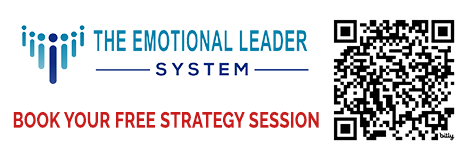 People high in this emotional wealth habit typically …
People high in this emotional wealth habit typically …
- Are open to emotions; they are attentive to whether words, voice tone, and body language match.
- Are good at picking up when people are saying something that differs from reality. For example, they can tell if a colleague is not feeling ok even if she says otherwise.
- Pay attention and pick up on the mood of a room or their environment
- Generally not surprised when people tell them how they feel about certain experiences or events.
- Are adept at reading others’ verbal and non-verbal emotional cues at work.
The ability to recognize emotion will help you to…
UNDERSTAND: How difficult it can be to ASK.
DO:
- Recognize how I and others are feeling – Am I open to and can I read emotion data?
- Ask others about my perceptions – What one behaviour do I want to change?
- Be open to FeedForward[1]/feedback – How can I increase my self-awareness?
DO NOT:
- Ignore emotions as a source of data – about me, others, and my environment
- Be rigid and blocked – be flexible and develop your tolerance for ambiguity
- Be dismissive, defensive, or doubtful – Ask to elicit honest responses
MEASURE SUCCESS:
You have been successful recognizing emotion when others see you:
- Choosing one behaviour you will improve on, recognizing how you and others feel
- Changing your mood after recognizing the impact it is having on others
- Opening up to stakeholders as true coaches for your self-improvement
UNDERSTAND:
How difficult it can be to ASK. Why don’t we ask for feedback more often? The number one reason is: We are afraid of what we’re going to hear, whether we know what we are going to hear or not. For example: delaying getting a medical diagnosis, postponing a dental appointment, and waiting to ask for feedback regarding how we are doing as leaders – procrastinating. Feedback is looking back. Successful people like getting ideas that are aimed at helping them achieve their goals (FeedForward). How open are you to asking?
THE BOTTOM LINE IS:

